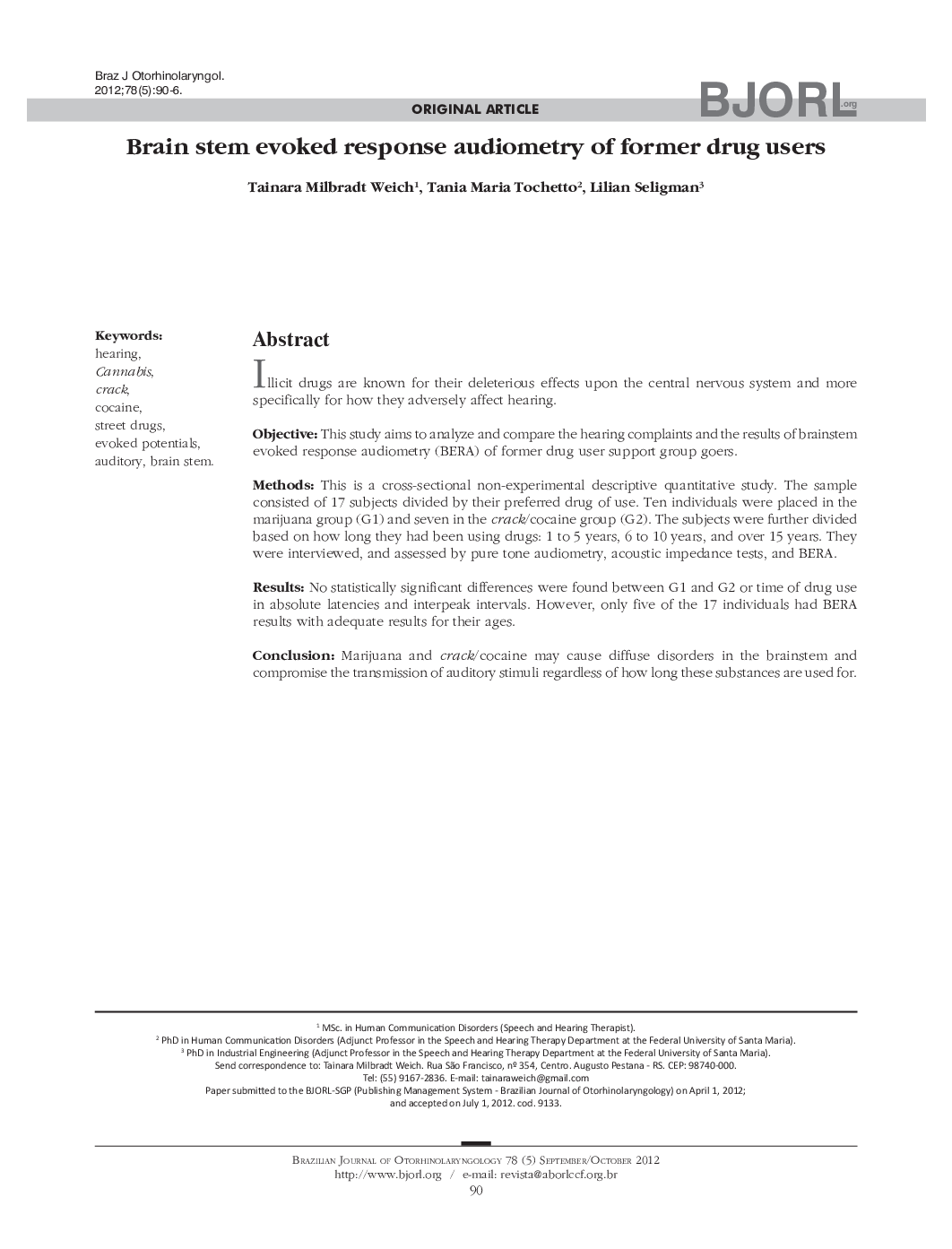| Article ID | Journal | Published Year | Pages | File Type |
|---|---|---|---|---|
| 4106794 | Brazilian Journal of Otorhinolaryngology | 2012 | 7 Pages |
Illicit drugs are known for their deleterious effects upon the central nervous system and more specifically for how they adversely affect hearing.ObjectiveThis study aims to analyze and compare the hearing complaints and the results of brainstem evoked response audiometry (BERA) of former drug user support group goers.MethodsThis is a cross-sectional non-experimental descriptive quantitative study. The sample consisted of 17 subjects divided by their preferred drug of use. Ten individuals were placed in the marijuana group (G1) and seven in the crack/cocaine group (G2). The subjects were further divided based on how long they had been using drugs: 1 to 5 years, 6 to 10 years, and over 15 years. They were interviewed, and assessed by pure tone audiometry, acoustic impedance tests, and BERA.ResultsNo statistically significant differences were found between G1 and G2 or time of drug use in absolute latencies and interpeak intervals. However, only five of the 17 individuals had BERA results with adequate results for their ages.ConclusionMarijuana and crack/cocaine may cause diffuse disorders in the brainstem and compromise the transmission of auditory stimuli regardless of how long these substances are used for.
